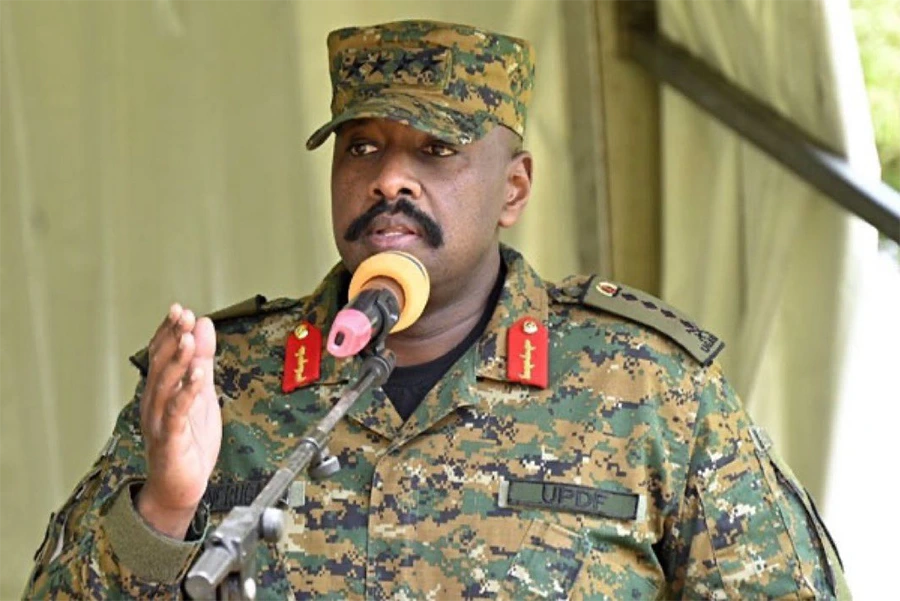Uganda’s Diplomatic Standoff with the U.S.: Power, Family, and the Future
In a significant diplomatic event reflecting the intricate ties between familial power and national politics, General Muhoozi Kainerugaba, Uganda’s top military leader and son of longstanding President Yoweri Museveni, has issued a striking ultimatum. General Kainerugaba has demanded that U.S. Ambassador William Popp apologize to his father by Monday or potentially face expulsion from Uganda. This demand was publicly shared via the social media platform X, with the general accusing Ambassador Popp of undermining President Museveni and exhibiting unprofessional conduct.
This confrontation sheds light on the complex and evolving dynamics of Uganda’s political landscape. President Museveni, who has been at the helm of Uganda since 1986, is now 80 years old and in pursuit of a seventh term in office. Throughout his lengthy rule, Museveni has woven a tapestry of allies and adversaries, striving to maintain his grip on power in a rapidly changing world. His son, General Kainerugaba, has risen rapidly in both military and political arenas, prompting speculation of a potential dynastic succession within Uganda’s leadership.
General Kainerugaba’s ultimatum follows accusations of U.S. interference in Uganda’s domestic politics, particularly targeting the National Resistance Movement (NRM), which Museveni founded and has led for decades. The tensions between the two nations have been exacerbated by recent U.S. sanctions against several Ugandan officials accused of human rights violations, a move that has further strained the already delicate relations between Uganda and the U.S.
Despite these tensions, Uganda remains heavily dependent on U.S. aid and military support. This diplomatic crisis, therefore, holds significant implications for Uganda’s economy, its role in regional security, and its international alliances. In response to potential fallout, Uganda may increasingly look towards other global powers such as China, seeking new strategic partnerships.
Critics of the Museveni administration point to the increasing entrenchment of family members in critical positions of power as indicative of a worrying trend towards hereditary rule. This trend poses a challenge not only to Uganda’s democratic processes but also raises profound questions about the future trajectory of the country’s political landscape.
As the global diplomatic community keenly observes the unfolding events, this situation highlights a broader movement across Africa. More African leaders are assertively pushing back against Western influence, emphasizing their agency and independence. However, this assertiveness comes with the challenge of maintaining a balance between these strategic partnerships and addressing ongoing concerns related to human rights and democratic governance.
This developing scenario in Uganda embodies a crucial moment for both the nation and the broader international community, as it navigates the intricate dance between power, familial influence, and the pressures of global diplomacy.
